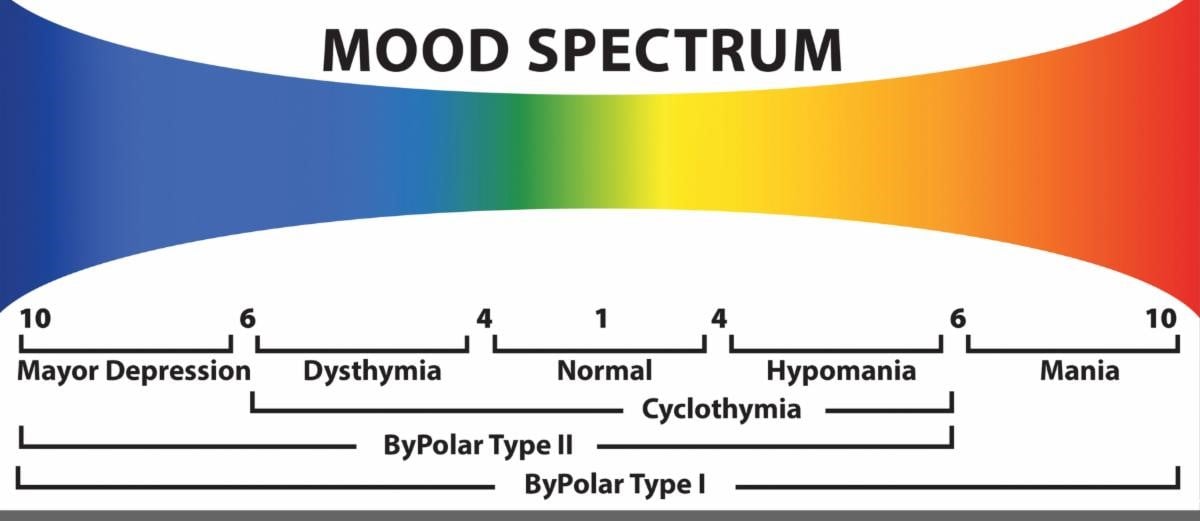
1. Definition: Bipolar disorder, formerly known as manic depression, is a mental health condition characterised by extreme mood swings, including emotional highs (mania or hypomania) and lows (depression).
2. Causes: While the exact cause of bipolar disorder is unknown, it may involve biological differences and genetics, as it tends to run in families. Factors like stress, trauma, and substance abuse can trigger episodes.
3. Risk Factors: Having a first-degree relative with bipolar disorder, periods of high stress, and drug or alcohol misuse increase the risk of developing the condition.
4. Symptoms: Bipolar disorder symptoms include manic or hypomanic episodes (elevated mood, increased energy, decreased need for sleep) and depressive episodes (persistent sadness, loss of interest, changes in appetite or sleep).
Types: There are several types of bipolar disorder, including:

5. Diagnosis: Diagnosis involves identifying at least one manic episode, with symptoms lasting at least a week. A comprehensive evaluation, including mental state examination, is required; a medical history and blood tests, helps rule out other conditions.
6. Treatment: Treatment typically involves a combination of medications (mood stabilisers (e.g. Lithium), antipsychotics) and psychotherapy (cognitive-behavioral therapy (CBT), family therapy) to manage symptoms and prevent relapse.
7. Complications: Untreated bipolar disorder can lead to serious complications, including substance abuse, suicidal behaviour, financial problems, and relationship issues.
8. Prognosis (outlook): With proper treatment, people with bipolar disorder can manage their symptoms and lead productive lives. However, it’s a lifelong condition that requires ongoing management.
9. Prevention: While there’s no sure way to prevent bipolar disorder, early treatment of mental health conditions, getting enough sleep, and avoiding substance abuse can help reduce symptoms and prevent relapse.
10. Referral: Patients with suspected bipolar disorder should be referred to a psychiatrist, who has experience in managing bipolar disorder, particularly if the patient is experiencing severe symptoms, suicidal ideation, or treatment-resistant episodes.